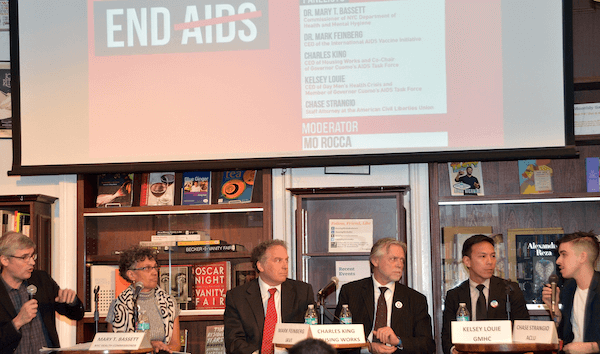Asserting it will help prevent new infections and ensure support and care for those living with the disease, three City Council members introduced legislation on February 26 that would require the city Department of Health and Mental Hygiene (DOHMH) to issue an annual report to the Council and the mayor on its efforts to stop the spread of hepatitis B and hepatitis C.
It is estimated that between 250,000 and 500,000 people in New York City are living with viral hepatitis, according to reports from the NYC Hepatitis B Coalition and the NYC Hepatitis C Task Force, both of which are citywide networks of medical service providers and advocates. But the majority of individuals infected with the viruses, which are leading causes of liver cancer, are unaware of their status, according to those same reports.
The annual report called for in the new bill, which is co-sponsored by Councilmembers Corey Johnson and Margaret Chin of Manhattan and Peter Koo of Queens, would include infection rates and specific demographic data for new infections, information on community outreach regarding the diseases, and a summary of the efficacy of DOHMH hepatitis-related programs, among other details.
“There’s just not enough data around the reporting now, and it’s hard to fight the disease without knowing more about the demographics and the communities that are most affected,” said Johnson, the out gay chair of the Council’s Committee on Health. “Getting real scientific data was a key step in helping to combat HIV/ AIDS after it broke out in the ‘80s, and we should be using a similar model for hepatitis B and C.”
It is generally known that the disease disproportionately affects particular demographic groups, although the estimates can be hazy due to a lack of awareness among members of those populations.
Asian Americans represent around half of those infected with hepatitis in the United States, according to research conducted by the Charles B. Wang Community Health Center, a nonprofit group based in Lower Manhattan. Statistics compiled by the US Department of Health and Human Services show that African Americans are twice as likely to be infected with hepatitis C than members of the general population.
Hepatitis co-infection with HIV increases the risks of both conditions.
“Too many New Yorkers are unaware of their status, risk factors, or where they can go for help and further support,” said Chin, whose Manhattan district includes Chinatown. “It is vital that we shine light on this deadly disease, and ensure that our communities, especially immigrant communities and communities of color, can talk openly and honestly about the toll hepatitis is taking on our families, friends, and loved ones.”
A DOHMH spokesperson said the department is currently reviewing the legislation, but declined to offer any further comment.

































